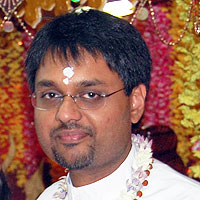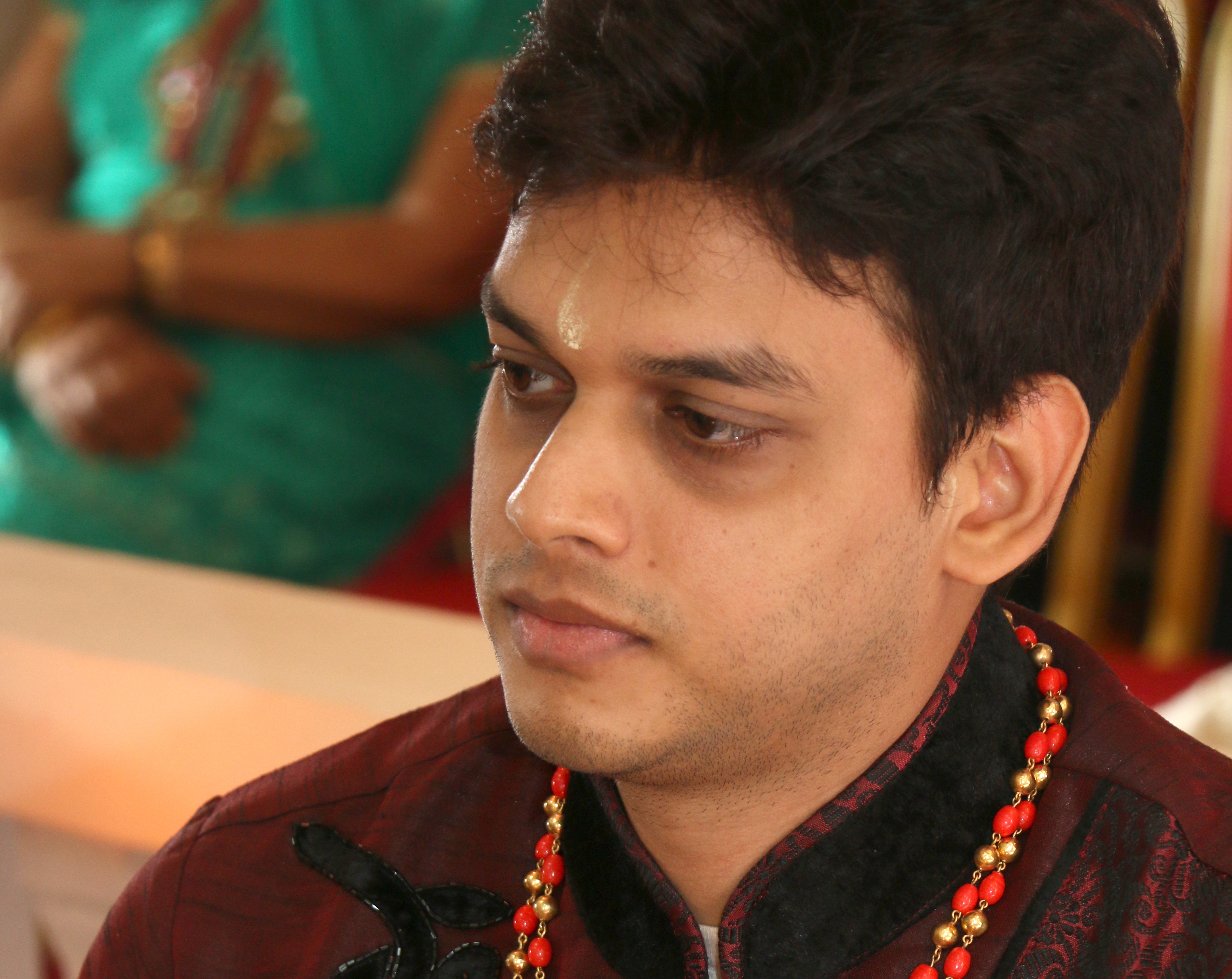Sanaatan Dharma has always emphasised the importance of remembering and honouring our ancestors (purvaj) in a meaningful way. The period of Pitra Paksha, the dark fortnight in the month of Aashwin (September-October), is set aside for the remembrance of our departed ancestors (pitris). During this period, Hindus are advised to refrain from beginning any important projects, or from engaging in yagyas and major ceremonies such as the vivaah sanskaar (marriage) and the upanayan sanskaar (janew). Due to these restrictions, however, there is sometimes confusion and fear about this period. It is not that this is an entirely inauspicious period, but rather, that it is very auspicious for offering worship in the name of our ancestors. It is important to note also, that all nitya karma, our essential daily worship, including the offering of jal to Surya Devta and the lighting of the deeya at periods of sandhya should continue as normal.
In addition to the normal activities associated with a person’s profession or their Varna Dharma, and the duties in the various stages in life or Ashram Dharma, a person’s daily routine includes the performance of five duties, which are named Panch Maha Yagya. These are the minimal practices that guide a person in everyday life and ensure peace, material advancement and, most importantly, spiritual growth. These five daily obligations are:
Devta Yagya, worship of the Divine
2. Brahma or Rishi Yagya, study of the Scriptures
3. Pitri Yagya, honouring the ancestors
4. Bhuta Yagya, serving the needy, both mankind and animals
5. Manush Yagya, honouring guests
Pitri Yagya must be practised every day of our lives. It is a great blessing to us to recognize and honour our ancestors, from the sages and rishis to our blood lineage. One could never accurately measure the extent to which our modest but mighty ancestors have influenced Hindu values. The numerous religious and spiritual practices that they cherished and nurtured have provided motivation for us to persist along the path of spiritual perfection. We are who we are because of the sacrifices and love of our ancestors. As Hindus, we should be grateful to our ancestors for the sacrifices they have made in standing up for our dharma. We are ever-evolving, and we are a product of all the virtuous and positive characteristics of the ancestors. We show our gratitude for all that we have been blessed with by making special offerings in their name.
Pitri yagya does not necessarily mean making physical offerings, but could refer to the upholding of tradition or the continuance of spiritual practices bequeathed to us by our ancestors. It is also meant to serve as a reminder that we all exist at both the gross and subtle levels. The performance of these rituals, such as facing south and offering tilanjali (water and black till) or engaging in pitri havan bring blessings to the ones performing them; some of the merits also go to the departed souls in whose name they are performed. The giving of daan or charity in the name of the ancestors is said to also be very propitious at this time.
One must also understand that every offering that is made in the name of our departed ancestors is actually received by the Divine Lord, Aryamaa Pitra. What our ancestors receive are some of the merits accrued from such offerings. Shree Krishna states in Bhagavad Gita (Chp.9.16), “I am the offering to the departed…I am verily the act of performing oblations into the fire.” Pitra Paksha offers us the unique opportunity to receive blessings while, at the same time, praying for the continued evolution and elevation of the souls of our departed loved ones.



